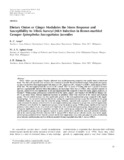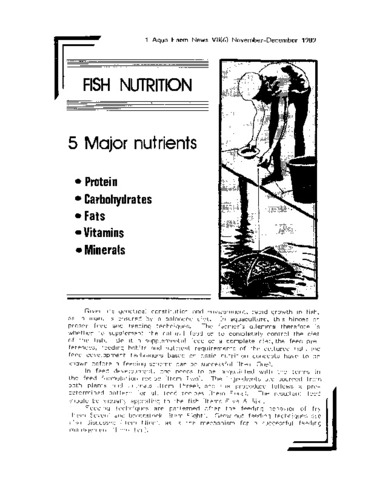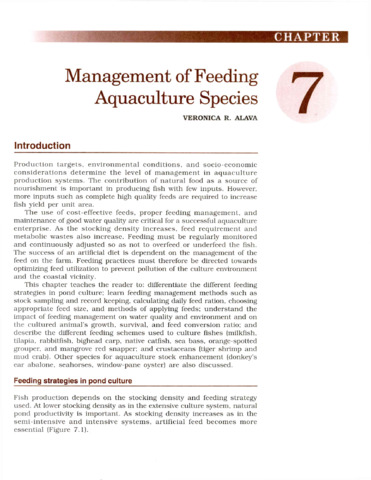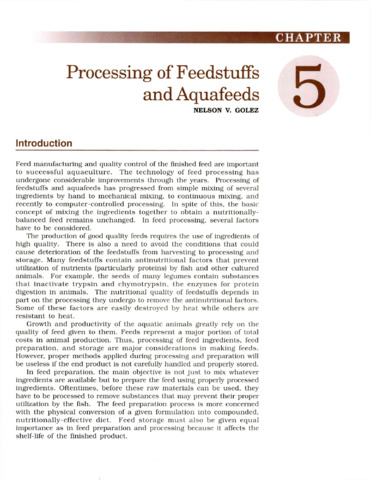Dietary onion or ginger modulates the stress response and susceptibility to Vibrio harveyi JML1 infection in brown-marbled grouper Epinephelus fuscoguttatus juveniles
Share
Abstract
Onion Allium cepa and ginger Zingiber officinale have health‐promoting properties that qualify them as functional foods. The effect of repeated acute stressors was examined in juvenile Brown‐marbled Grouper Epinephelus fuscoguttatus that were fed four diets supplemented with onion at 1.8%, ginger at 1.8%, vitamin C at 0.86%, and β‐glucan at 0.8% of the diet. The non‐supplemented diet served as the control. After 12 weeks of feeding, fish were exposed to stressors and were experimentally infected with a fish pathogen, the bacterium Vibrio harveyi JML1. After repeated exposure to hypoxia, cortisol levels rose significantly in the non‐supplemented fish compared to those fed onion, ginger, β‐glucan, or vitamin C. Within groups, postexposure cortisol levels in the onion‐, ginger‐, and vitamin C‐fed fish did not change relative to pre‐stress levels, whereas significant increases in poststress values were observed in the control and β‐glucan groups. The net cortisol increase was also significantly greater in the non‐supplemented group compared to the supplemented groups. The net cortisol increase did not vary among the supplemented groups except that the β‐glucan‐fed group exhibited a higher net increase than the onion‐fed group. Similarly, repeated acute exposure to osmotic stress significantly increased the plasma cortisol level in the non‐supplemented group compared to groups that received supplements; no differences were found in the supplemented groups except the β‐glucan group. Within groups, significant increases in poststress values relative to pre‐stress levels were found only in the control and β‐glucan groups. Repeated acute exposure to hypoxia significantly increased cumulative mortality in the control group compared to the supplemented groups (except the β‐glucan group), whereas repeated exposure to acute osmotic stress significantly increased cumulative mortality only in the control group 10 d after infection with V. harveyi JML1. Based on our collective results, most of the supplemented groups performed better than the control, but the best supplements were onion and ginger in terms of enhancing stress tolerance and increasing survival of Brown‐marbled Grouper upon infection with V. harveyi JML1.
Suggested Citation
Amar, E. C., Apines-Amar, M. J. S., & Faisan, J. P., Jr. (2018). Dietary onion or ginger modulates the stress response and susceptibility to Vibrio harveyi JML1 infection in brown-marbled grouper Epinephelus fuscoguttatus juveniles. Journal of Aquatic Animal Health , 30(1), 39-49. https://doi.org/10.1002/aah.10005
Subject
Taxonomic term
Collections
- AQD Journal Articles [1249]
Related items
Showing items related by title, author, creator and subject.
-
Fish nutrition
Carreon-Lagoc, Julia; Southeast Asian Fisheries Development Center, Aquaculture Department (Aquaculture Department, Southeast Asian Fisheries Development Center, 1989) -
Management of feeding aquaculture species
Alava, Veronica R. (Aquaculture Department, Southeast Asian Fisheries Development Center, 2002)This chapter teaches the reader to: differentiate the different feeding strategies in pond culture; learn feeding management methods such as stock sampling and record keeping, calculating daily feed ration, choosing ... -
Processing of feedstuffs and aquafeeds
Golez, Nelson V. (Aquaculture Department, Southeast Asian Fisheries Development Center, 2002)This chapter will help the reader understand and appreciate the basic principles of processing, preparation, storage, and quality control in the preparation of aquafeeds. The material in this section is presented in sequence ...




